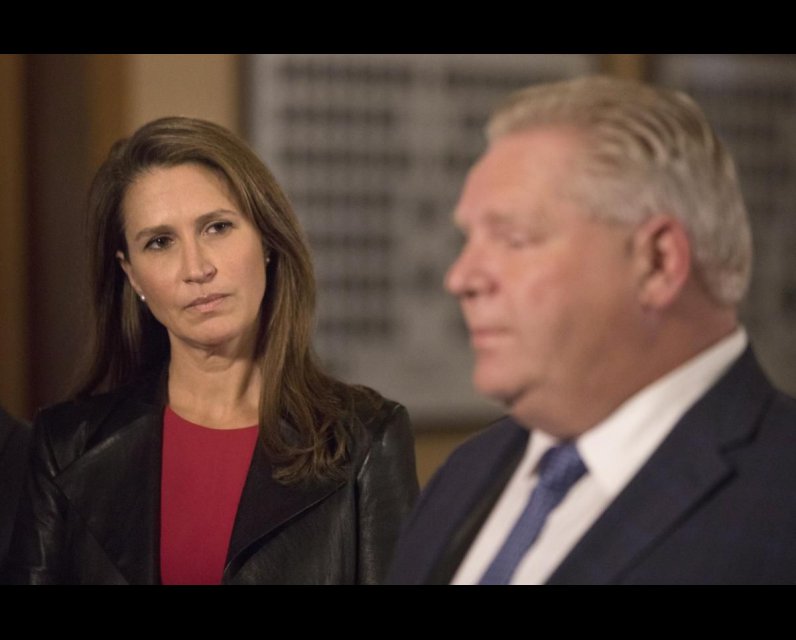Warning message
- Last import of users from Drupal Production environment ran more than 7 days ago. Import users by accessing /admin/config/live-importer/drupal-run
- Last import of nodes from Drupal Production environment ran more than 7 days ago. Import nodes by accessing /admin/config/live-importer/drupal-run
Unpublished Opinions
Syndicated #cdntech #cdnpoli #onpoli blogger. Cutting out the political spin to get the info that matters. Retired EDM DJ. Father to a son with autism.
Twitter: @jkobopoli
Contact E-mail: jkobopoli at rogers dot com
Doug Ford’s Civil Rights Crisis Part 1

Autorized by: Jason Koblovsky
Traditionally the conservative movement has always been one of accountable government and respect for the rule of law. Since the Ford Government took power in Ontario and under the support of Attorney General Caroline Mulroney, it has legislated the notwithstanding clause into legislation with the threat of doing it again, and most recently threatened crown immunity as a way to try and negotiate out of contracts signed by the previous government. Then there are the legal aid cuts essentially muzzling low income individuals with cuts to social services and a redefinition of disability in forthcoming legislation. In these instances, Mulroney has attempted to make the government above the law of the land and unaccountable to the people it serves.
Last week the Canadian/US Bar association raised significant concerns about the rule of law to Ontario’s Attorney General with respect to the government ripping up beer contracts in Bill 115. It’s not just about beer. In its letter the bar association stated (emphasis added):
“If enacted, Bill 115 risks undermining the rule of law in a number of ways. First, it represents a seemingly arbitrary decision by the government in office to invoke its legislative power to override the law of contract and depart from a legal undertaking by the Government of Ontario relied on by private parties. Second, unlike laws of general application, which do not predetermine precisely whom they will affect, it targets the parties to a specific contract. Third, it expropriates private parties while purporting to deny them any right to compensation and redress in Canadian courts. This last characteristic has few, if any, precedents in Canadian legal history. The norm against expropriation without compensation is a feature of legal systems protective of property rights and the rule of law, and finds expression in the investor protections of international investment treaties.”
Basically what this means is that government has no deterrence for breaking contracts or law. If there’s no deterrence for breaking the law, then there’s nothing in place to keep government accountable. If there’s no accountable government, than government can basically break the law at will without penalty or prosecution. Deterrences to keep government in check for the most part are financial penalties for breaking the law, whether that be contract or civil/constitutional law.
What the bar association is pointing out to the attorney general is that legislating legal immunity for breaking contracts can have adverse effects across the legal system in many different areas as a result of the lack of deterrence. While the bar association's letter did deal with Bill 115 exclusively and hinted of wide spread effects legislating crown immunity could have on the rule of law in Ontario, it did not reference a more troubling position the Ford government has already taken regarding crown immunity across the board.
The Ontario Government has introduced legislation in Bill 100 (budget implementation bill) called the Crown Liability and Proceedings Act. Section 11 of the Crown Liability and Proceedings Act makes the government completely immune to civil lawsuits relating to policy decisions. This section should be of particular concern with respect to those whom rely on government for help - meaning our most vulnerable in society and particularity those with disabilities. Section 11 of the Crown Liability and Proceedings Act states the following:
“11. Extinguishment of causes of action respecting certain governmental functions
11. (1) No cause of action arises against the Crown or an officer, employee or agent of the Crown in respect of any negligence or failure to take reasonable care while exercising or intending to exercise powers or performing or intending to perform duties or functions of a legislative nature, including the development or introduction of a bill, the enactment of an Act or the making of a regulation."
Mulroney's staff know they have a problem with incompetence and stupidity in cabinet. Lisa MacLeod being the one that’s most visible to the public. The Ford Government is actually making itself immune to stupidity by crown ministers rather than the appointment of qualified ministers. Just when you thought it couldn't get any worse, Section 11 continues:
"11. (4) No cause of action arises against the Crown or an officer, employee or agent of the Crown in respect of any negligence or failure to take reasonable care in the making of a decision in good faith respecting a policy matter, or any negligence in a purported failure to make a decision respecting a policy matter.”
In particular for autism community this means that the Ford government cannot be held to account in court for freezing the autism wait lists for therapy, which is probably the most uneducated and stupid move I’ve ever seen from a Minister of the Crown in any level of government both in Mulroney's part to protect this incompetence within legislation and for MacLeod's part in making a huge mistake by freezing the wait lists which opened up the province and tax payers huge to legal liability as a result of MacLeod's incompetence on the autism file.
The next quote from this horribly thought-out legislation is what deeply concerns me, considering government is about to redefine disability law in Ontario. This piece of the legislation makes the Government immune to any court challenges on those proposed changes. For the autism community this also makes the government immune to changes with respect to the Ontario Autism Program among other things:
“11. (5) For the purposes of subsection (4), a policy matter includes,
(a) the creation, design, establishment, redesign or modification of a program, project or other initiative, including,(ii) the eligibility or exclusion of any person or entity or class of persons or entities to participate in the program, project or other initiative, or the requirements or limits of such participation, or
(iii) limits on the duration of the program, project or other initiative, including any discretionary right to terminate or amend the operation of the program, project or other initiative;
(b) the funding of a program, project or other initiative, including,
(i) providing or ceasing to provide such funding,
(ii) increasing or reducing the amount of funding provided,
(iii) including, not including, amending or removing any terms or conditions in relation to such funding, or
(iv) reducing or cancelling any funding previously provided or committed in support of the program, project or other initiative;”
While questioned on this piece of legislation during a recent question period, Mulroney stated that this immunity doesn’t extend past provincial law, and will not make the government immune to federal charter challenges. The Canadian Civil Liberties Association on the other hand has already threatened to challenge this legislation in court the moment it receives royal assent because it is unconstitutional.
I’m deeply concerned that moving forward it’ll end up being open season on the rights of our most vulnerable. There seems to be a potential within this legislation that expressing frustration on policy could end up leading to a reduction in services. Considering the amount of backlash regarding the autism file, and parents registering their concerns regarding MacLeod's leadership through consultations and protections awarded in law to protect ministerial decisions made out of incompetence and neglect, this could be setting up to be a perfect storm of intentional civil rights abuses by the Government of Ontario.
Part two of this blog will focus on what this will mean for of accountable government under Premier Doug Ford.



Comments
Be the first to comment